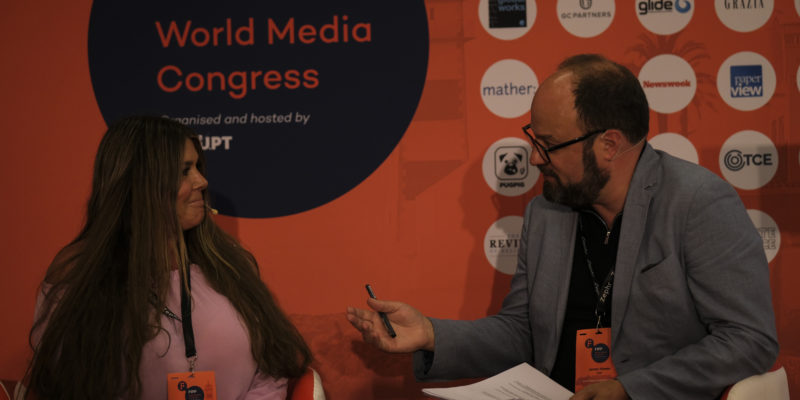It would be easy to be negative after the last couple of years. But opening the first in-person FIPP Congress since 2019, the international industry association’s chief executive James Hewes said the overriding theme of the industry event was ‘positivity and progress’.
Speaking to around 400 delegates from 35 countries, he acknowledged that a combination of disruption and uncertainty makes publishers’ lives increasingly difficult, but went on to speak of new possibilities and the potential to revitalize legacy businesses. He said:
The multitude of new opportunities open to us… means that there has never been a better time to work in this industry. There’s never been a more exciting time to be a publisher.
Key quotes from FIPP Congress
- People matter in publishing, possibly more than ever before. The pandemic created some positives for publishing but it has also stretched teams dealing with accelerated digital transformation. Strategic leadership expert Professor Lucy Kueng believes this calls for sensitive leadership that identifies and supports talent in the organization. She said:
There’s a lot of really, really critical expertise, in very, very young heads in the organization…in the data functions, in the social teams. It’s so important that those voices really get heard in the meetings.
- The digital transformation picked up speed through COVID but it is not complete. Ralph Buchi of Axel Springer said that properly approaching the next wave of innovation should be one of the key focal points for today’s industry. He explained:
It would be very risky to think that we have done digital transformation now and that’s that. We have to be prepared for the next one.
- First-party data strategy featured in several presentations at the FIPP Congress 2022. Launching the annual Innovation in Media World Report, lead author Juan Señor said publishing’s shift to first-party data represents “the beginning of forever” with profound changes coming to audience relationships. He said
The phaseout of third-party cookies is a golden opportunity – a chance to really get our audience data back. To do this, you MUST know your audience.
- New audiences featured for publishers focused on engagement rather than reach. The New York Times, The Financial Teams and slow-journalism site Tortoise were all using audio to bring younger audiences into their orbit. Alastair Mackie, Head of Digital Development at the FT explained that the FT now has more listeners to its podcasts than paying readers.
The majority don’t subscribe to the FT, a significant majority are outside our home markets, and they’re very young, in FT terms: the average age is 45.
- Content is still King for publishers looking to strengthen relationships with audiences, gather meaningful data insights and convert engaged free readers to paying subscribers or members. Arnaud de Puyfontaine is CEO of Vivendi, owners of the premium TV channel Canal+ with 24 million subscribers in 40 countries. He believes success in today’s media market relies on having the broadest and the most appealing offer possible.
The 19th century brought the gold rush, the 20th the oil rush, and in the 21st we can say the content rush.









